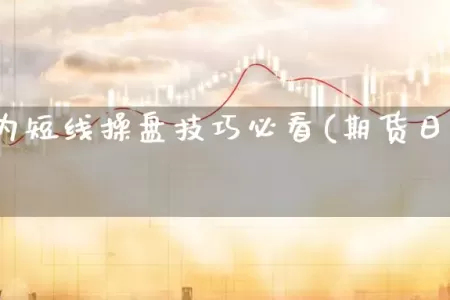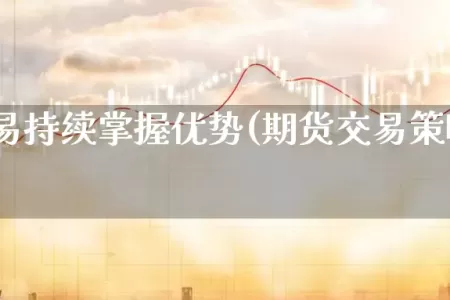期货和股票对应(期货和股票有什么关联)
期货和股票是金融市场中两种常见的投资工具,它们之间存在着一定的关联。期货是一种标准化合约,约定在未来某一特定时间按照约定价格买入或卖出一定数量的标的资产,而股票则代表着公司的所有权。在投资领域中,期货和股票都是投资者进行资产配置和风险管理的重要工具。
期货和股票的联系
期货和股票之间存在着一定的联系,主要体现在以下几个方面:
期货价格的波动会影响股票市场的走势。期货市场是一个高度杠杆化的市场,投资者可以通过少量的资金控制更大的头寸。当期货市场出现大幅波动时,会引起股票市场的震荡,因为投资者会调整其资产配置,从而影响股票价格的走势。
期货市场和股票市场之间存在套利机会。由于期货价格和现货价格之间存在一定的关联,投资者可以通过套利交易来获取利润。例如,如果某只股票的期货价格低于其现货价格,投资者可以通过买入股票同时卖出期货合约来获取套利机会。
期货市场的交易量和活跃度也会对股票市场产生影响。期货市场是一个高度流动性的市场,交易量大且交易时间长,投资者可以在任何时间买入或卖出期货合约。当期货市场活跃度增加时,会吸引更多的投资者参与其中,从而影响股票市场的交易活跃度。
期货和股票的区别
期货和股票虽然都是投资市场中的重要工具,但它们之间也存在着一些明显的区别:
期货是一种标准化合约,约定在未来某一特定时间按照约定价格买入或卖出一定数量的标的资产,而股票则代表着公司的所有权。期货市场的交易对象通常是大宗商品、金融衍生品等,而股票市场的交易对象是公司的股票。

期货市场是一个高度杠杆化的市场,投资者可以通过少量的资金控制更大的头寸。而股票市场则相对而言更加稳健,投资者需要支付全部资金才能购买股票。
期货市场的交易时间长,可以在任何时间买入或卖出期货合约,而股票市场通常只在交易日内开放交易。期货市场的交易量和活跃度也通常高于股票市场。
期货和股票的风险管理
期货和股票在投资中都可以用于风险管理,帮助投资者降低投资风险。
在期货市场中,投资者可以通过期货合约进行对冲操作,锁定未来某一时间的价格,从而降低价格波动带来的风险。例如,农产品生产商可以通过期货合约锁定未来的销售价格,避免价格下跌带来的损失。
在股票市场中,投资者可以通过分散投资的方式降低风险。通过购买不同行业、不同地区的股票,投资者可以降低单一股票的风险,提高整体投资组合的抗风险能力。
期货和股票的投资策略
在投资中,期货和股票都可以作为投资者的重要工具,可以根据市场情况和个人风险偏好来选择合适的投资策略。
对于期货市场,投资者可以通过技术分析、基本面分析等方法来进行投资决策,根据市场走势和风险偏好选择合适的期货合约进行交易。
对于股票市场,投资者可以通过价值投资、成长投资等方法来进行投资决策,选择具有潜力的公司进行投资,长期持有以获取资本增值。
期货和股票在金融市场中有着一定的关联,投资者可以根据自身需求和风险偏好选择合适的投资工具,并制定相应的投资策略来实现财富增值。Investing in futures and stocks is an important tool for investors to allocate assets and manage risks in the financial market.
关联 between Futures and Stocks
There are certain connections between futures and stocks, mainly reflected in the following aspects:
Firstly, the fluctuation of futures prices will affect the trend of the stock market. The futures market is a highly leveraged market, where investors can control larger positions with a small amount of funds. When the futures market experiences significant fluctuations, it will cause fluctuations in the stock market, as investors adjust their asset allocations, thereby affecting the stock prices.
Secondly, there are arbitrage opportunities between the futures market and the stock market. Due to the relationship between futures prices and spot prices, investors can profit from arbitrage trading. For example, if the futures price of a stock is lower than its spot price, investors can buy the stock and sell the futures contract to profit from the arbitrage opportunity.
In addition, the trading volume and activity of the futures market will also affect the stock market. The futures market is a highly liquid market, with large trading volumes and long trading hours, allowing investors to buy or sell futures contracts at any time. When the activity of the futures market increases, it will attract more investors to participate, thereby affecting the trading activity of the stock market.
Differences between Futures and Stocks
Although futures and stocks are both important tools in the investment market, there are also some obvious differences between them:
Firstly, futures are standardized contracts that agree to buy or sell a certain quantity of underlying assets at a specified price in the future, while stocks represent ownership of a company. The trading objects in the futures market are usually commodities, financial derivatives, etc., while the trading objects in the stock market are company stocks.
Secondly, the futures market is a highly leveraged market, where investors can control larger positions with a small amount of funds. In contrast, the stock market is relatively more stable, and investors need to pay the full amount to buy stocks.
Furthermore, the futures market has long trading hours, allowing investors to buy or sell futures contracts at any time, while the stock market usually only trades during trading hours. In addition, the trading volume and activity of the futures market are usually higher than the stock market.
Risk Management of Futures and Stocks
Both futures and stocks can be used for risk management in investment, helping investors reduce investment risks.
In the futures market, investors can hedge through futures contracts to lock in future prices at a certain time, thereby reducing the risk of price fluctuations. For example, agricultural producers can lock in future sales prices through futures contracts to avoid losses caused by price declines.
In the stock market, investors can reduce risks by diversifying investments. By purchasing stocks in different industries and regions, investors can reduce the risk of individual stocks and improve the overall portfolio's risk resistance.
Investment Strategies for Futures and Stocks
In investment, futures and stocks can both be important tools for investors, and suitable investment strategies can be chosen based on market conditions and individual risk preferences.
For the futures market, investors can make investment decisions through technical analysis, fundamental analysis, etc., and choose the appropriate futures contracts for trading based on market trends and risk preferences.
For the stock market, investors can make investment decisions through value investing, growth investing, etc., and choose companies with potential for investment, holding them for the long term to achieve capital appreciation.
In conclusion, futures and stocks are related in the financial market, and investors can choose the appropriate investment tools and develop corresponding investment strategies according to their needs and risk preferences to achieve wealth appreciation.

















期货和股票对应(期货和股票有什么关联):等您坐沙发呢!